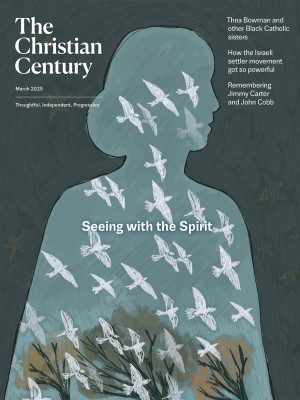The moral cost of rechargeable batteries
In the DRC’s cobalt mines, desperate workers earn a few dollars a day to help power our digital lives.

Cobalt Red
How the Blood of the Congo Powers Our Lives
If you use a mobile phone or tablet or are contemplating the purchase of an electric vehicle to lower your carbon footprint and lead a more sustainable life, this book will make you uncomfortable. That’s because all those items rely on cobalt as a key component for the lithium-ion rechargeable batteries that make them work. Most of that cobalt comes from the Democratic Republic of the Congo, where it is mined by what are euphemistically called artisanal miners—desperate young men, women, and children who have no protection, no access to medical care, and barely enough to eat and who work for a few dollars a day to help power our digital lives.
“Artisanal miners use rudimentary tools to extract dozens of minerals and precious stones in more than eighty countries across the global south,” writes Siddharth Kara. Because the work is almost entirely informal, they rarely have contracts for wages or working conditions. Artisanal miners are paid paltry wages on a piece rate basis and must assume all risks for injury, illness, or death.
Read our latest issue or browse back issues.
Roughly 45 million people globally are involved in artisanal mining—90 percent of the overall mining workforce. “The most advanced consumer electronic devices and electric vehicles in the world rely on a substance that is excavated by the blistered hands of peasants using picks, shovels, and rebar,” writes Kara. “Labor is valued by the penny, life hardly at all.” He relates the stories of numerous women and children who are often forcibly relocated to dig for cobalt at hidden sites in wilderness areas where it is found. When one young boy is killed in a mining accident, Kara’s guide remarks, “No one wants to live out there! But there is cobalt and gold, so the army takes the poorest people and makes them dig. What did that child die for? For one sack of cobalt? Is that what Congolese children are worth?”
The plight of Central Africa’s artisanal miners is only the latest chapter in a long history of colonial and postcolonial exploitation and abuse. From European and American slave traders beginning in the 1500s to colonization by European powers culminating in Belgium’s infamous King Leopold II in the 19th century to the most recent autocratic leaders, irreparable harm has been done to the people of the DRC in the insatiable quest for riches.
Kara contends that the suffering taking place in the mining provinces of the DRC today is entirely preventable through improved structures of accountability. Unfortunately, he notes,
most people do not know what is happening in the cobalt mines of the Congo, because the realities are hidden behind numerous layers of multinational supply chains that serve to erode accountability. By the time one traces the chain from the child slogging in the cobalt mine to the rechargeable gadgets and cars sold to consumers around the world, the links have been misdirected beyond recognition, like a con man running a shell game.
Kara describes a conversation in which he tells the Congolese ambassador to the United States about his experiences with the miners. They find common ground in the conviction that foreign companies should share more of the wealth generated from Congolese cobalt with the people who risk their lives to dig it out of the ground for them. They also agree on the importance of ensuring the safety and dignity of the DRC’s artisanal miners and the need for more sustainable mining practices to protect the environment. Kara concludes, “Lasting change is best achieved when the voices of those exploited are able to speak for themselves, and are heard when they do so.”
Kara is an award-winning writer, researcher, and activist on modern slavery who has authored three previous books on the subject. His extensive research is based on first-person interviews with artisanal miners and their families. If the book suffers from anything, it is the amount of detail—and the numerous acronyms that Kara uses to describe an admittedly complicated subject.
Reading Kara’s sobering account of the plight of the artisanal miners of the DRC, I recalled the words of Joseph Conrad, who described a previous era of colonial exploitation as “the vilest scramble for loot that ever disfigured the history of human conscience.” Unfortunately, the situation hasn’t improved very much.





